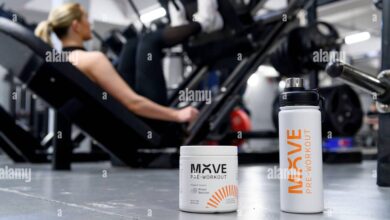
Discover the ideal fiber supplements to enhance your well-being. Our comprehensive guide outlines key factors to consider when selecting the best fiber supplements for your needs. Achieve optimal digestive health with our expert recommendations and make an informed decision on the most effective fiber supplements for you.
Understanding Fiber Supplements and Its Benefits
Whether it’s the broken pang of constipation or the burning urgency of diarrhea, many of us are familiar with digestive discomfort. According to the National Institutes of Health (NIH), about 16% of U.S. adults experience symptoms of constipation, a number that rises to 33% for those over 60. Conversely, approximately 179 million U.S. adults face diarrhea at any given time. For some, these symptoms alternate, indicative of irritable bowel syndrome (IBS), a condition affecting 25 to 45 million Americans.
Fiber supplements can help manage these issues effectively, but finding the right one for your body requires careful consideration.
Do You Need a Fiber Supplement?
Most Americans fall short of their daily fiber needs. Dietary guidelines recommend consuming 22 to 34 grams of fiber per day, depending on age and gender. However, studies reveal that the average adult consumes only about 16 grams daily.
While it’s best to meet your fiber requirements through natural sources like fruits, vegetables, whole grains, and legumes, fiber supplements are a helpful addition for those who struggle to meet these targets.
Who Can Benefit?
Anyone diagnosed with IBS or dealing with symptoms like constipation, diarrhea, bloating, or gas may benefit significantly from fiber therapy. Consulting a healthcare provider is a crucial first step.
Types of Fiber in Supplements
Fiber supplements aim to improve digestive health, but not all types are suitable for everyone. Here are the two primary types of fiber:
- Soluble Fiber: Dissolves in water to form a gel-like material, helping to lower inflammation and manage both diarrhea and constipation.
- Sources: Psyllium, inulin, acacia gum.
- Insoluble Fiber: Absorbs liquid and adds bulk to stools, making it effective for relieving constipation.
- Sources: Methylcellulose, wheat dextrin, flaxseed.
Some fibers are also fermentable, feeding beneficial gut bacteria and supporting gut health.
Common Fiber Supplements
Here are the types of fiber commonly found in supplements:
- Acacia Gum
- Calcium Polycarbophil
- Flaxseed
- Inulin
- Methylcellulose
- Psyllium
- Wheat Dextrin
Forms of Supplements
Fiber supplements come in various forms, including:
- Powders to mix with water or other liquids.
- Capsules for easy swallowing.
- Gummies for a chewable option.
- Edible products like crackers, cookies, or snack bars.
Factors to Consider When Choosing a Fiber Supplement
Not all supplements are created equal. Here are key considerations:
- Symptoms: Identify whether your primary issue is constipation, diarrhea, or a mix of both.
- Medical Conditions: Discuss with your healthcare provider, especially if you have IBS or other digestive conditions.
- Supplement Ingredients: Check for sugars, additives, or potential interactions with medications.
- Cost: Compare generic and branded options for affordability.
Consulting Your Healthcare Provider
A healthcare provider can help tailor the right supplement for your needs and rule out any underlying conditions like colon cancer or inflammatory bowel disease. Addressing these concerns ensures that fiber supplements can be safely and effectively incorporated into your routine.
Conclusion
Fiber supplements offer numerous health benefits, especially for managing bowel-related issues like constipation and diarrhea. However, choosing the right one depends on individual symptoms, medical history, and preferences. Consulting a healthcare provider ensures you make the best choice for your digestive health.
By taking the time to select the right supplement and following professional advice, you’re on your way to improved gut health and overall well-being.
Sources (1)



